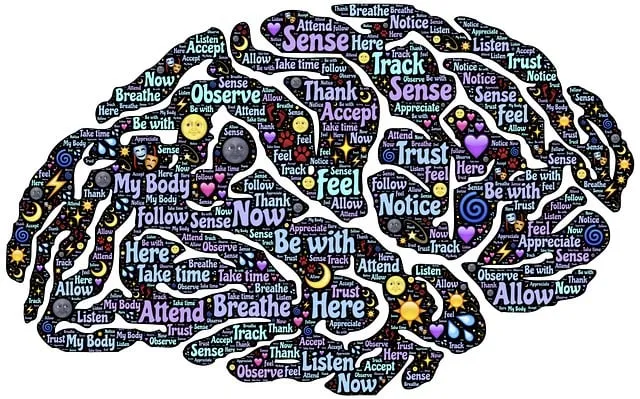Kaiser Permanente Englewood addresses the growing need for accessible and personalized mental wellness solutions through mobile apps that offer tailored interventions like guided meditations, mood tracking, and community support groups. These apps empower users with coping strategies, enhance well-being, and foster a sense of belonging in a digital community. Developing such an app requires understanding local needs, partnering with experts, and creating an engaging, user-friendly interface. Effective marketing strategies, emphasizing evidence-based practices and peer support, will increase its accessibility for all Englewood residents seeking mental health resources.
In today’s digital age, mental wellness apps are becoming essential tools to support individual well-being. This article explores the growing importance of these applications, particularly through a Kaiser Permanente perspective, focusing on their impact in communities like Englewood. We delve into key features and functionality that make an app effective, outlining a development process tailored to local needs. Additionally, marketing and user engagement strategies are discussed to ensure successful launches, addressing the unique challenges within the mental health space.
- Understanding the Need for Mental Wellness Apps: A Kaiser Permanente Perspective
- Key Features and Functionality of Effective Mental Health Apps
- Development Process: Building an App That Meets Englewood Community Needs
- Marketing and User Engagement Strategies for Success in Mental Health App Development
Understanding the Need for Mental Wellness Apps: A Kaiser Permanente Perspective

At Kaiser Permanente Englewood, we recognize the growing need for accessible and personalized mental wellness solutions in today’s fast-paced world. The demand for tools that promote self-awareness exercises and resilience building among individuals has never been higher. Traditional therapy settings may not cater to everyone’s needs or preferences, especially those who prefer digital platforms for their convenience and discretion.
Our perspective emphasizes the potential of mobile apps to bridge this gap by offering tailored interventions and support networks. By integrating features such as guided meditations, mood tracking, and community outreach program implementations, mental wellness apps can empower users with effective coping strategies. This innovative approach not only enhances individual well-being but also fosters a sense of belonging within a supportive digital community.
Key Features and Functionality of Effective Mental Health Apps

Effective mental health apps should offer a comprehensive suite of features to cater to diverse user needs. Key functionalities include personalized therapy sessions tailored to individual struggles, whether anxiety, depression, or stress management. These apps often incorporate tools like mood tracking, meditation exercises, and cognitive-behavioral techniques, enabling users to monitor their emotional well-being and progress. Many successful apps also integrate community aspects, fostering connections between users through support groups and peer mentoring, as seen in initiatives like the Kaiser Permanente mental health Englewood Community Outreach Program Implementation.
Beyond individual therapy, compassion cultivation practices and emotional healing processes are integral components of modern mental wellness apps. Features encouraging self-compassion, mindfulness, and empathy towards others can significantly enhance user experiences. These practices not only support personal growth but also foster a sense of belonging within the app community, contributing to improved mental health outcomes.
Development Process: Building an App That Meets Englewood Community Needs

Developing a mental wellness app tailored for the Englewood community involves understanding the unique needs and challenges faced by residents. Kaiser Permanente’s commitment to mental health services in this area makes it an ideal partner in this initiative, ensuring the app aligns with evidence-based practices. The process begins with extensive research, engaging local community leaders and mental health experts to identify key areas of focus. This may include features such as personalized Stress Management techniques, guided Mindfulness Meditation sessions, or tools for Anxiety Relief, all designed to be accessible and culturally relevant.
Once the requirements are defined, the development team creates a user-friendly interface that encourages consistent engagement. Incorporating feedback from beta testers from the Englewood community is crucial to refining the app’s effectiveness and usability. By combining scientific rigor with community input, the app aims to empower users with skills to navigate their mental health journeys while fostering a sense of collective well-being within the neighborhood.
Marketing and User Engagement Strategies for Success in Mental Health App Development

Marketing and user engagement strategies play a pivotal role in the success of mental health apps, especially when competing for users’ attention in a saturated market. Apps focusing on Kaiser Permanente mental health services in Englewood should emphasize their unique value propositions to stand out. This could include highlighting evidence-based practices, secure data privacy, and personalized support tailored to diverse user needs. Incorporating features that foster community engagement and peer support can create a sense of belonging and encourage consistent usage.
Leveraging strategic marketing channels is essential. Targeting mental health awareness campaigns and collaborating with healthcare providers like the Stress Management Workshops Organization can increase visibility. Utilizing social media platforms with engaging content, such as educational videos or success stories, can attract users seeking empowerment through emotional intelligence tools. Additionally, partnerships with cultural competency training programs within healthcare systems ensure that apps cater to a broad user base, promoting inclusivity and accessibility for all Englewood residents.
Mental wellness apps have emerged as powerful tools, especially in communities like Englewood, where access to traditional mental health services may be limited. As evidenced by Kaiser Permanente’s perspective, there is a growing need for innovative solutions that cater to the unique challenges faced by individuals in these areas. By focusing on key features like personalized therapy sessions, stress management techniques, and community support networks, developers can create effective apps tailored to the specific needs of Englewood residents. A successful development process involves close collaboration with the community, while marketing strategies should emphasize the app’s ability to enhance mental wellness and engage users through interactive features. With the right approach, mental health apps have the potential to revolutionize access to care, making it easier for folks in Englewood and similar communities to prioritize their mental well-being.






